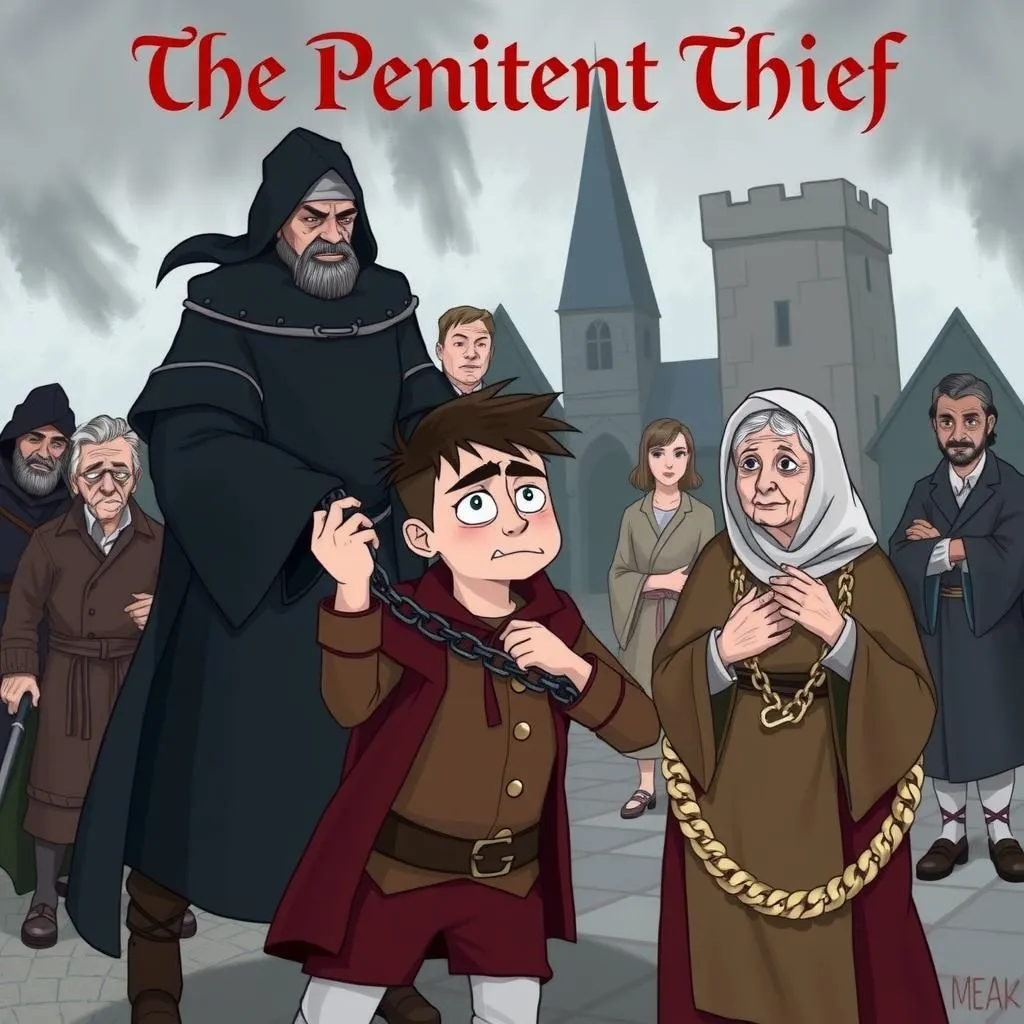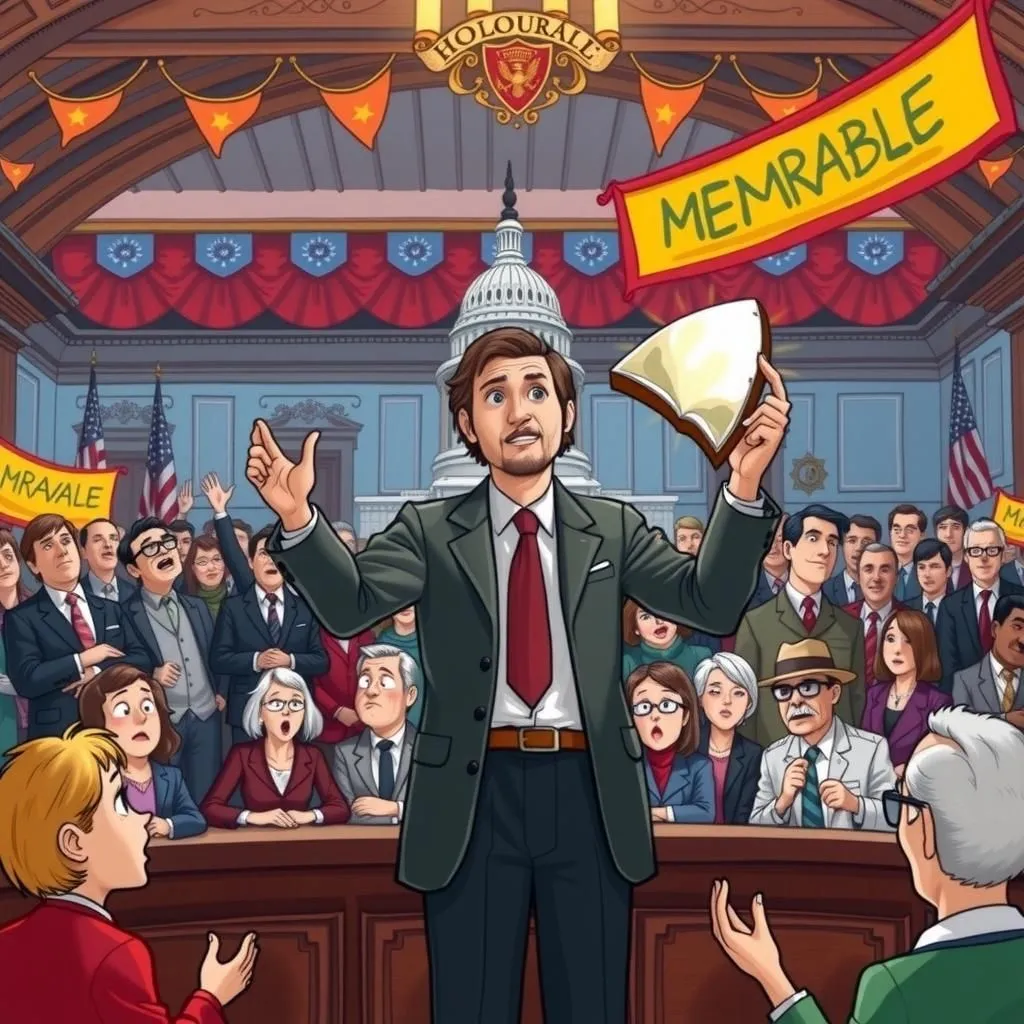
The Patriot and the Banker
In "The Patriot and the Banker," a former politician, having grown rich from questionable gains, tries to open a bank account but is confronted by an Honest Banker who insists he must repay the money he stole from the government first. Realizing the bank's share of the loss is minimal, the Patriot deposits just a dollar, humorously illustrating the lessons learned from stories about accountability and the often feeble attempts at restitution by those who prioritize wealth over integrity. This funny story with a moral serves as a big moral tale, teaching valuable lessons that can resonate with kids and adults alike.


